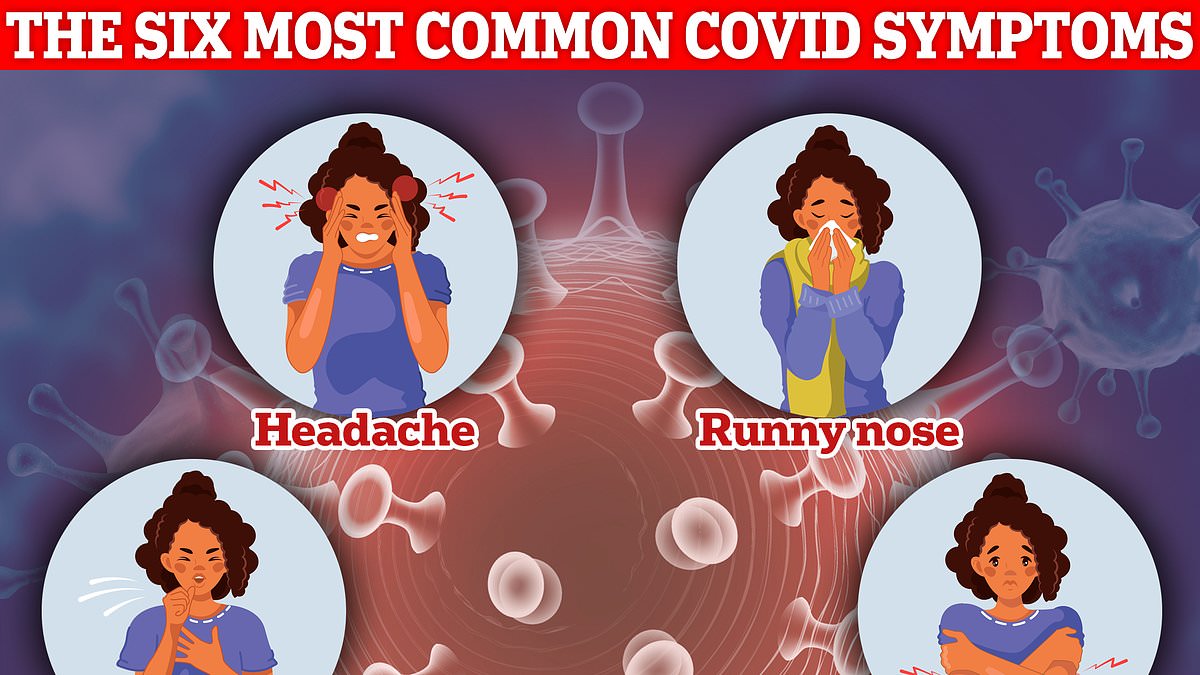Looking to lose weight fast in a healthy way? Wondering how to lose belly fat? It’s tempting to turn to quick fixes like taking weight loss pills marketed as natural “fat burners.”
In fact, surveys show that approximately 15 percent of U.S. adults have used weight loss dietary supplements at some point in their lives, with more women (around 21 percent) reporting use compared to men (about 10 percent).
BuBefore experimenting with these products, consider the fact that most diet pills, drinks and formulas (even those labeled “natural”) are capable of causing a range of unexpected side effects and interactions.
So what are the best weight loss supplements available on the market that don’t pose health risks? As you’ll learn below, natural ways to help you reach and maintain a healthy weight include consuming food-based fat burners like conjugated linoleic acid (CLA) and certain fat-burning foods that are high in protein and fiber.
Keep reading to lear the best fat burner options out there.
What Are Fat Burners?
What qualifies a product as a “fat burner”? Fat burners are also called thermogenics. Thermogenic supplements seem to help you burn stored body fat by using the body’s fat reserves as a source of energy.
According to the School of Sport and Exercise Sciences at University of Birmingham, “The term ‘fat burner’ is used to describe nutrition supplements that are claimed to acutely increase fat metabolism or energy expenditure, impair fat absorption, increase weight loss, increase fat oxidation during exercise, or somehow cause long-term adaptations that promote fat metabolism.”
Although their efficacy and safety are constantly scrutinized by the U.S. Food and Drug Administration and other organizations, manufacturers of thermogenic “diet pills” often claim that taking these supplements can help improve weight loss almost effortlessly by boosting your metabolism (the rate at which you burn calories). Some may also be at least somewhat helpful for decreasing your appetite, curbing cravings for junk foods and giving you more energy, which can be used for physical activity.
Are the weight loss claims about these ingredients necessarily true? It seems to depend on the type of thermogenic fat burners in question, the active ingredients that are used in the products, dosages taken and an individual person’s response.
Active ingredients that are commonly used in thermogenic supplements vary by brand but usually contain a mix of stimulants, herbs and acids. Testimonials, along with findings from certain studies, suggest that thermogenics do seem to work for some — however, in some cases, their ingredients can also be dangerous or totally ineffective.
University of Birmingham researchers stated, “Based on the available literature, caffeine and green tea have data to back up [their] fat metabolism-enhancing properties. For many other supplements, although some show some promise, evidence is lacking.”
Common Ingredients in Weight Loss Pills
The types of ingredients found in many weight loss pills, such as balloon weight loss capsules, include:
- Caffeine: Studies show possible modest effects on body weight or decreased weight gain over time when consuming caffeine. Caffeine is usually OK in small to moderate amounts for most people but can also cause side effects like heart palpitations and restlessness. There’s no sound evidence that caffeine alone will help you lose weight, and the cons of taking too much caffeine are worth considering.
- Guarana: Guarana has among the highest concentrations of caffeine in any plant. It contains up to 3.5 percent to 5.8 percent caffeine by volume, while coffee only has up to 2 percent. For increased energy and enhanced mental focus, some people use between 200 to 800 milligrams of guarana a day, which seems to be generally safe. However, side effects for some can include those similar to consuming too caffeine, such as difficulty sleeping, indigestion, anxiety, changes in blood pressure, dependence and a quickened heartbeat. Guarana can also interact with medicines, like some antidepressants, lithium, sedatives, other stimulants and blood thinners.
- Green tea extract (see below): Of the most popular weight loss ingredients, this seems to be one of the safest. However, it’s not guaranteed to work well enough to really cause noticeable results. Reported adverse effects may include headache and urinary tract infections, although these are rare. Possible benefits include a mild increase in energy expenditure and fat oxidation.
- Garcinia cambogia: Overall studies suggest little to no effect on body weight when taking garcinia cambogia. Some people report reduced hunger, however others experience side effects like loose stools, flatulence, diarrhea, constipation and abdominal discomfort.
- Ephedrine: Significant safety concerns have been reported about this product, even to the point of it being banned as a dietary supplement ingredient in the U.S. Reported reactions include anxiety, mood changes, nausea, vomiting, hypertension, palpitation, stroke, seizures, heart attack and death.
- Forskolin: In recent years, forskolin supplements have been used to promote weight loss. There is no scientific evidence to support that plant-based forskolin causes weight loss or burns fat, although it may prevent weight gain without changing your diet. While it can be purchased in supplement form, many so-called “pure forskolin” supplements are dangerous and contain unnamed ingredients.
Best Natural Fat Burners
Given the potential risks of taking commercial fat burners and weight loss products, below are healthier natural fat burners to consider, including key anti-aging compounds and nutrients to help increase growth of lean muscle tissue and boost your energy naturally.
1. Conjugated Linoleic Acid (CLA)
Conjugated linoleic acid is the name given to group of chemicals found in the fatty acid called linoleic acid. Because it’s a type of polyunsaturated fat, we don’t make CLA on our own and must obtain it from the foods in our diets.
A few of the major sources of CLA in your diet may include full-fat dairy products, like whole milk or cheese, beef and butter. CLA is also found in some bodybuilding supplements, protein powders or weight loss formulas.
How could the “fatty” foods mentioned above that contain CLA be good for reducing body fat? The jury is still out regarding the effects of CLA on promoting weight loss, but results from certain studies suggest that CLA (taken either alone or along with supplements like creatine and whey protein) can help increase strength, reduce appetite and cause other beneficial changes in body composition.
One report published in the Journal of Nutritional Biochemistry found that CLA has positive effects on energy metabolism, adipogenesis, inflammation, lipid metabolism and apoptosis. Another study published in the British Journal of Nutrition similarly found that supplementation of a CLA mixture in overweight and obese people (three to four grams a day for 24 weeks) decreased body fat mass and increased lean body mass.
Regarding CLA’s safety, there seems to be very little risk for adverse effects on overall blood lipids, inflammation levels and insulin response in healthy, overweight or obese adults.
You can acquire CLA from supplements as opposed to natural foods, but it might not be as beneficial, considering CLA found in supplements is not the most effective type for stopping fat storage. Your best bet is to eat foods that supply relatively high doses: real butter from grass-fed cows (ideally organic), full-fat dairy (preferably raw and possibly fermented, such as yogurt), grass-fed beef, and to a lesser degree grass-fed lamb, veal, turkey and wild-caught seafood.
2. Green Coffee Beans
Green coffee beans first gained popularity when some studies found that it has the ability to help induce weight loss. While it’s certainly not a quick-fix way to reach a healthier weight, research suggests that chlorogenic acid is highly absorbable once consumed and helps the body burn glucose and stored body fat for energy.
It may also reduce inflammation (a root cause of diabetes and other metabolic problems), slow the release of sugar into the bloodstream and help regulate the release of insulin, which brings glucose into the cells.
One animal study published in the Asian Pacific Journal of Tropical Medicine that tested the effects of green coffee bean extract (GCBE) on obese mice found that GCBE “significantly decreased body weight gain, liver weight and white adipose tissue weights with regulation of adipose tissue lipolysis hormones, like adiponectin and leptin.”
At the end of the study, the mice treated with GCBE had lower fat mass compared to mice that were not given GCBD but were fed the same high-fat diet. Overall, the mice given green coffee bean experienced a relative body weight and fat mass decrease, which resulted in the researchers stating that “GCBE has a potential anti-obesity effects.”
3. Grapefruit Essential Oil
There are several ways that grapefruit essential oil may act like a natural weight loss booster. Grapefruit’s active ingredients may be able to boost metabolism, reduce your appetite, lower cravings and give you a mild dose of uplifting energy. Enzymes found in the fruit help your body break down sugar according to certain study findings, and as an added benefit many people find the scent of citrus fruits reduces cravings for sweets.
Additionally, when applied topically to the skin in small amounts, grapefruit essential oil is an excellent diuretic and lymphatic stimulant — one reason why it’s included in many cellulite creams and blends for dry brushing.
All of these benefits can be obtained from using several drops of pure grapefruit essential oil either diffused in your office/home, added to shower or bath, or massaged with a carrier oil onto your chest and wrists. Try this when a craving strikes, and you might just find you’re able to pass on the snacks.
4. Green Tea and Other Herbal Teas
Consuming a safe amount of caffeine from natural teas can help boost energy levels, reduce inflammation and rev up your metabolism. Even one to two cups of coffee daily can improve physical performance, focus or motivation, and boost your metabolism after working out.
One of the best ways to get the benefits of green tea is to consume matcha green tea, a concentrated powdered green tea from Japan that seems to have some noteworthy fat-burning benefits. What’s in matcha that makes it so beneficial for everything from cognitive function to enhancing fat-burning? It’s the catechins, a type of antioxidant found in high levels in green tea that may reduce body weight, speed up recovery following workouts and decrease free radical damage.
Drinking either one cup of coffee or green tea about an hour before a workout can provide a safe, effective energy boost and fat-burning buzz. Rooibos tea and yerba mate are other options. They contain flavonoids and phytochemicals that may have similar beneficial, anti-aging effects associated with metabolic functions.
5. Protein Supplements and Foods
Although some research studies show conflicting results regarding high-protein diets versus low-protein diets for maintaining an ideal weight or losing weight fast, there’s plenty evidence that protein helps make you feel full and can prevent overeating. Studies show that controlled calorie intake in association with a moderately high protein intake can be an effective and practical weight-loss strategy.
Some of the reasons this is true? Protein functions to increase satiety to a greater extent than carbohydrates or fats, helping prevent overeating and snacking.
It’s usually much easier to overeat carbohydrates, especially if they’re refined or sweetened, than it is to overeat healthy protein foods.
Eating protein also creates a process in the body known as thermogenesis, which requires the body to expend more energy (calories) in order to digest food. At the same time, protein helps ward off muscle loss that can result from a low-calorie diet, which makes certain protein foods beneficial for weight loss. (Learn “how many calories should I eat a day?”)
Foods high in protein, like whey protein, grass-fed beef, wild-caught fish or free-range chicken, require more energy for the body to break down than foods lower in protein. If your goal is to lose weight, consume half your body weight in grams of protein a day. For those seeking to burn fat and build muscle, aim to consume 0.7 to a gram per pound of body weight.
6. Probiotic Foods and Supplements
Probiotics are “good bacteria” found in fermented foods or drinks, along with certain supplements. These bacteria reside in your gastrointestinal tract (also called the microbiome) and have many functions throughout your body. Research suggests that probiotics have numerous benefits for immune, digestive, hormonal and central nervous system functions.
Studies have indicated that there are differences in the microbial composition between obese and non-obese patients, and probiotics are involved in energy homeostasis, regulation of appetite, dietary intake and storage of lipids (fats).
Through the proliferation of beneficial bifidobacteria in the gut, certain studies have found that consuming more probiotics may be helpful for those trying to lose weight — since eating probiotic foods is associated with enhanced weight loss and protection against obesity. To consume more probiotics in your diet, try eating yogurt, kefir or cultured veggies at least a few times a week, while also considering a probiotic supplement.
7. Fat-Burning Foods (Include Those High in Fiber and Protein)
Eating filling, fat-burning, natural foods doesn’t come along with the same risks as taking pills. The key is to consume your calories wisely, choosing foods that are filling, healing and chock-full of nutrients like fiber, protein, healthy fatty acids and antioxidants.
- High-Fiber Foods: These include things like chia seeds, flaxseeds, or fresh veggies and berries. Because fiber is not able to be digested once consumed, plus it absorbs so much of its own weight in water, these foods help slow your body’s digestion of glucose (sugar), keep you feeling full and beat cravings. Many foods high in fiber are also very nutritionally dense, meaning you get more bang for your nutritional buck.
- Cherries: Cherries contain high levels of antioxidants that fight free radical damage and protect cells. Research also indicates that cherries might help remove excess body fat and increase melatonin, supporting a healthy sleep cycle, which is crucial for healthy thyroid function.
- Apple Cider Vinegar: Consuming ACV before a meal may help you feel fuller with less food, reduce cravings for sweets and improve digestion functions.
- Coconut Oil: Thanks to the medium-chain fatty acids it contains, coconut oil (and similar fats, such as ghee) can actually help your body burn fat for fuel and use up more energy during everyday functions like digestion. Healthy fats like coconut oil have also been found to be very satisfying for hunger and may support thyroid health, which is crucial for maintaining a strong metabolism. Swapping out refined vegetable oils for coconut oil in your cooking is a simple way to get more in your diet.
- Bone Broth: Thanks to the abundance of amino acids bone broth contains (like glycine, proline and arginine), it prevents muscle breakdown, increases your metabolism and helps detoxify your body.
- Spicy Foods like Cayenne Pepper: Spices that warm the body seem to be good for more than just keeping you feeling toasty — they may also increase your body’s ability to burn fat, suppress hunger levels, normalize glucose levels and reduce your appetite for sweets. Studies demonstrate that herbs like cayenne pepper, turmeric, cinnamon and dandelion may all help reduce weight gain without having negative effects. Because spices have positive effects on metabolism, add some daily to things like homemade detox drinks, marinades for proteins, stir-fry, veggies or soups.
8. Yohimbine/Yohimbe
The herbal supplement yohimbe has been proven as an effective way to burn fat. In fact, a 2006 randomized, controlled trial sought to determine the effects of the supplement on body composition and exercise performance in professional soccer players.
The researchers found that “percentage of body fat significantly decreased in the yohimbine group after the supplementation protocol… Furthermore, fat mass was significantly lower in the yohimbine versus placebo trial at postsupplementation assessment.”
Other Important Tips for Burning Fat
While the above foods and supplements can steer you in the right direction, don’t neglect the importance of things like:
Risks and Side Effects
Studies have found that risks of fat-burning supplements can include nausea, headaches, anxiety, indigestion and trouble sleeping. Most adverse effects are caused by factors like interactions with medications, ingesting too much caffeine or consuming “filler” ingredients not even listed on the product’s label.
While weight loss products may possibly give you a lift in energy and mood, they likely won’t be enough to sustain any real weight loss without other lifestyle changes. Here are several risks associated with “fat-burning supplements” and other fat burners that you’ll want to consider before taking these products:
1. Lack of Evidence for Safety
Most weight loss supplements are not tested in clinical trials or included in evaluation studies conducted under well-controlled conditions with average human volunteers. Weight loss pill manufacturers are not required to test new ingredients or even to list things like potential side effects on the product’s label. Therefore it can be hard to tell what type of ingredients you’re even ingesting when consuming weight loss supplements or how you’ll react to different dosages.
2. Faulty Labeling and Dangerous Ingredients
It’s been found that due to faulty labeling, some weight loss products, like herbs, acids or enzymes, can sometimes be tainted with things like bacterial germs, fillers, pesticides or toxic heavy metals. In one case, supplements advertised to women as “weight loss supplements” contained the weight loss drug sibutramine, which has been banned in the United States because of the risk of heart attack and stroke.
3. Harmful Interactions with Medications or Other Supplements
Another risk regarding the use of dietary supplements intended to promote weight loss is that these products are usually self-prescribed without clearance or input from a health care professional. This can result in harmful interactions between different products and/or medications.
Currently in the U.S., there is no controlled system for reporting bad reactions and side effects associated with popular weight loss pills. While some people taking these products, or their doctors, may sometimes report problems to the FDA, they’re not required by law to do so.
4. Too Much Caffeine or Other Stimulants
Caffeine is often included in fat-burning supplements the form of yerba mate or guarana — however, manufacturers may include these substances in amounts they’re rarely used otherwise.
Caffeine is a common weight loss ingredient because it often has the effect of dulling someone’s appetite and helps increase energy for activity. However, too much caffeine can cause side effects like jitteriness, headaches, insomnia, anxiety, heart palpitations, diarrhea and more.
Final Thoughts
- Most weight loss pills claiming to be fat burners are really types of “thermogenics.” Thermogenic supplements might help you burn stored body fat by using the body’s fat reserves as a source of energy, decrease your appetite, curb cravings for junk foods and possibly give you more energy.
- Side effects of weight loss ingredients like guarana, garcinia cambogia or ephedrine can include anxiety, sleep trouble, indigestion, diarrhea, rapid heartbeat, headaches, dependency, and blood pressure or heartbeat changes.
- Safer and more natural fat burners for helping with weight loss include eating fat-burning foods along with probiotics, consuming the nutrient CLA and high-protein foods, drinking green tea, and using grapefruit essential oil.





